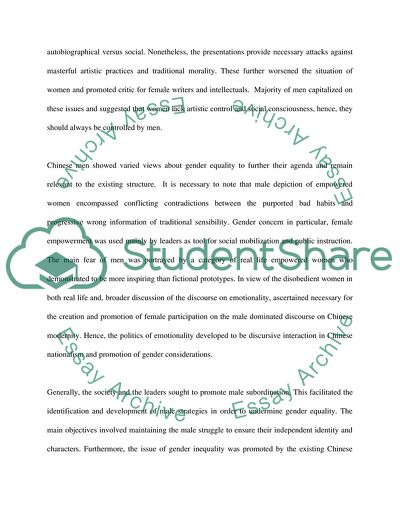Gender Issue in Chinese Nationalism as a Complex Relationship between Term Paper. https://studentshare.org/gender-sexual-studies/1825173-chinese-literature
Gender Issue in Chinese Nationalism As a Complex Relationship Between Term Paper. https://studentshare.org/gender-sexual-studies/1825173-chinese-literature.


